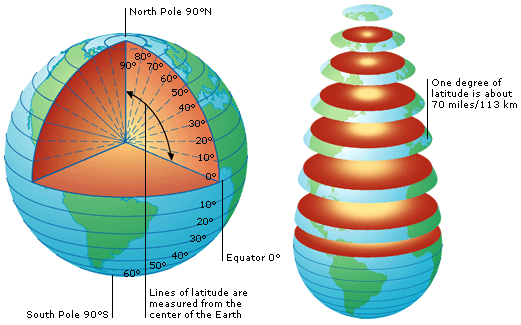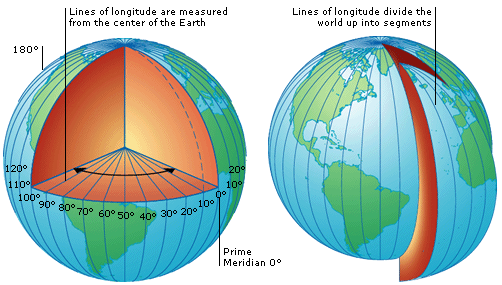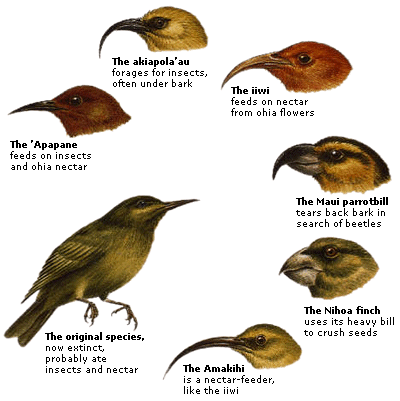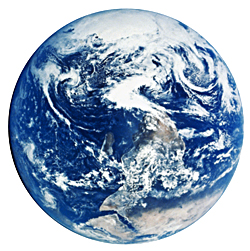World
In a philosophical context it may refer to:
- the whole of the physical Universe, or
- an ontological world (see world disclosure).
In a theological context,
world usually refers to the material or the profane sphere, as opposed to the celestial, spiritual, transcendent or sacred. The "
end of the world" refers to scenarios of the final end of human history, often in religious contexts.
In terms such as
world map and
world climate,
world is used in the sense detached from human culture or civilization, referring to the planet
Earth physically.
Etymology and usage
The corresponding word in
Latin is
mundus, literally "clean, elegant", itself a loan translation of Greek
cosmos "orderly arrangement." While the Germanic word thus reflects a mythological notion of a "domain of Man" (compare
Midgard), presumably as opposed to the divine sphere on the one hand and the
chthonic sphere of the underworld on the other, the Greco-Latin term expresses a notion of
creation as an act of establishing order out of
chaos.
'World' distinguishes the entire
planet or
population from any particular
country or
region:
world affairs pertain not just to one place but to the whole world, and
world history is a field of
history that examines events from a global (rather than a national or a regional) perspective.
Earth, on the other hand, refers to the planet as a physical entity, and distinguishes it from other planets and physical objects.
'World' was also classically used to mean the material universe, or
the cosmos: "The worlde is an apte frame of heauen and earthe, and all
other naturall thinges contained in them."
[5] The earth was often described as 'the center of the world'.
[6]
'
World' can also be used attributively, to mean 'global', 'relating to the whole world', forming usages such as
world community or world canonical texts.
[7]
'
World', in original sense, when qualified, can also refer to a particular domain of
human experience.
Philosophy
In philosophy, the term world has several possible meanings. In some contexts, it refers to everything that makes up
reality or the physical
universe. In others, it can mean have a specific
ontological sense (see
world disclosure). While clarifying the
concept of world has arguably always been among the basic tasks of
Western philosophy, this theme appears to have been raised explicitly only at the start of the twentieth century
[8] and has been the subject of continuous debate. The question of what the world is has by no means been settled.
- Parmenides
The traditional interpretation of
Parmenides' work is that he argued that the every-day perception of reality of the physical world (as described in
doxa)
is mistaken, and that the reality of the world is 'One Being' (as
described in aletheia): an unchanging, ungenerated, indestructible
whole.
- Plato
In his
Allegory of the Cave,
Plato distinguishes between forms and ideas and imagines two distinct worlds : the sensible world and the intelligible world.
- Hegel
In
Hegel's
philosophy of history, the expression
Weltgeschichte ist Weltgericht
(World History is a tribunal that judges the World) is used to assert
the view that History is what judges men, their actions and their
opinions. Science is born from the desire to transform the World in
relation to Man; its final end is technical application.
- Schopenhauer
The World as Will and Representation is the central work of
Arthur Schopenhauer.
Schopenhauer saw the human will as our one window to the world behind
the representation; the Kantian thing-in-itself. He believed, therefore,
that we could gain knowledge about the thing-in-itself, something Kant
said was impossible, since the rest of the relationship between
representation and thing-in-itself could be understood by analogy to the
relationship between human will and human body.
- Wittgenstein
Two definitions that were both put forward in the 1920s, however,
suggest the range of available opinion. "The world is everything that is
the case," wrote
Ludwig Wittgenstein in his influential
Tractatus Logico-Philosophicus, first published in 1922. This definition would serve as the basis of
logical positivism,
with its assumption that there is exactly one world, consisting of the
totality of facts, regardless of the interpretations that individual
people may make of them.
- Heidegger
Martin Heidegger,
meanwhile, argued that "the surrounding world is different for each of
us, and notwithstanding that we move about in a common world".
[9]
The world, for Heidegger, was that into which we are always already
"thrown" and with which we, as beings-in-the-world, must come to terms.
His conception of "
world disclosure" was most notably elaborated in his 1927 work
Being and Time.
- Freud
In response,
Sigmund Freud
proposed that we do not move about in a common world, but a common
thought process. He believed that all the actions of a person are
motivated by one thing: lust. This led to numerous theories about
reactionary consciousness.
- Other
Some philosophers, often inspired by
David Lewis, argue that metaphysical concepts such as possibility, probability and necessity are best analyzed by comparing
the world to a range of
possible worlds; a view commonly known as
modal realism.
Religion and mythology
Buddhism
In
Buddhism, the world means society, as distinct from the
monastery.
It refers to the material world, and to worldly gain such as wealth,
reputation, jobs, and war. The spiritual world would be the path to
enlightenment, and changes would be sought in what we could call the psychological realm.
Christianity
In
Christianity, the term often connotes the concept of the
fallen and corrupt world order of human society, in contrast to the
World to Come. The world is frequently cited alongside
the flesh and
the Devil as a source of
temptation that Christians should flee.
Monks speak of striving to be "
in this world, but not
of this world"—as
Jesus
said, and the term "worldhood" has been distinguished from "monkhood",
the former being the status of merchants, princes, and others who deal
with "worldly" things.
"Therefore I command you to do as I believe you are willing to do, that you free yourself from worldly affairs (Old English: woruldðinga)
as often as you can, so that wherever you can establish that wisdom
that God gave you, you establish it. Consider what punishments befell us
in this world when we neither loved wisdom at all ourselves, nor
transmitted it to other men; we had the name alone that we were
Christians, and very few had the practices."
Although Hebrew and Greek words meaning "world" are used in Scripture
with the normal variety of senses, many examples of its use in this
particular sense can be found in the teachings of
Jesus according to the
Gospel of John, e.g. 7:7, 8:23, 12:25, 14:17, 15:18-19, 17:6-25, 18:36. For contrast, a relatively newer concept is
Catholic imagination.
Contemptus mundi
is the name given to the recognition that the world, in all its vanity,
is nothing more than a futile attempt to hide from God by stifling our
desire for the good and the holy.
[10] This view has been criticized as a "pastoral of fear" by modern historian
Jean Delumeau.
[11]
Eastern Christianity
In Eastern Christian monasticism or
asceticism
the world of mankind is driven by passions. Therefore the passions of
the World are simply called "the world". Each of these passions are a
link to the world of mankind or order of human society. Each of these
passions must be overcome in order for a person to receive salvation (
theosis). The process of theosis is a personal relationship with God. This understanding is taught within the works of ascetics like
Evagrius Ponticus, and the most seminal ascetic works read most widely by Eastern Christians, the
Philokalia and the
Ladder of Divine Ascent (the works of Evagrius and
John Climacus are also contained within the Philokalia). At the highest level of world
transcendence is
hesychasm which culminates into the
Vision of God.
Orbis Catholicus












